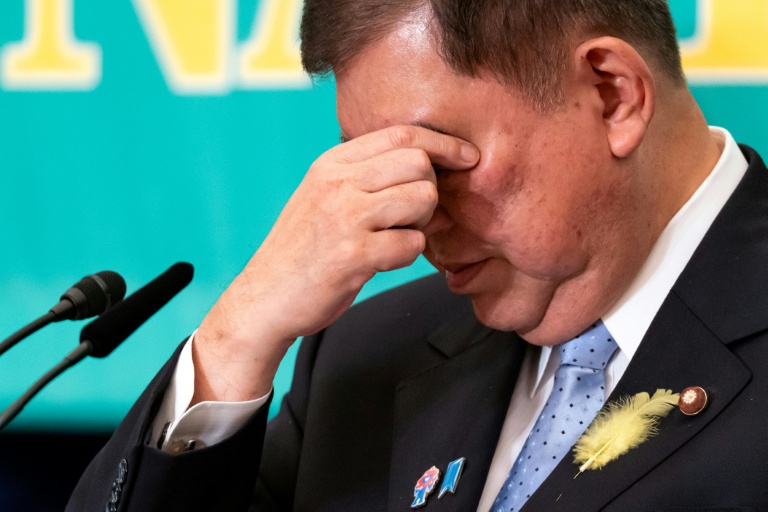Asian markets headed into the weekend on a broadly positive note Friday, as investors took up New York’s latest record highs sparked by healthy US retail data and upbeat earnings from some of Wall Street’s big names.
The readings helped divert attention away from Donald Trump’s tariffs saga, with dozens of countries yet to cut deals with the US president two weeks before his August 1 deadline.
However, Japanese investors were a little more anxious after news that rice prices once again doubled in June, compounding problems for Prime Minister Shigeru Ishiba ahead of weekend elections in which the grain has been a hot topic.
The Nasdaq and S&P scaled fresh peaks Thursday after figures showed US retail sales rose more than expected last month and reversed May’s decline, indicating the world’s top economy remains in good health. Another modest jobless claims report provided extra assurance.
That came on top of forecast-topping earnings from streaming behemoth Netflix, which further fanned buying in tech firms that followed Trump’s decision to allow chip giant Nvidia to export its H20 semiconductors to China.
Hong Kong stocks led most of Asia higher thanks to tech leaders, while there were also gains in Shanghai, Sydney, Singapore, Taipei, Manila and Jakarta. Seoul and Wellington dropped.
Tokyo was also in the red as nervous investors eyed Sunday’s vote, with opinion polls suggesting Ishiba’s ruling coalition could lose its majority in the upper house, having lost control of the lower house last year.
A poor show for the premier — who has been battered by a cost of living crisis — could put pressure on him to step down and likely usher in a period of uncertainty in the world’s number four economy.
“Cost-of-living concerns have dominated the campaign for this weekend’s upper house election,” wrote Stefan Angrick, head of Japan and frontier markets economics at Moody’s Analytics.
“Ishiba’s government has boxed itself in, promising only some belated and half-hearted financial support that will do little to improve the demand outlook.”
Adding to the premier’s problems was news that rice prices had soared 99.2 percent in June year-on-year, having rocketed 101 percent in May and 98.4 percent in April.
Public support for his administration has tumbled to its lowest level since he took office in October, with people also angry at his failure to reach a deal to avoid the worst of Trump’s tariffs.
“While Ishiba’s base applauds his refusal to bow to Trump’s every tweet, the unwillingness to give even an inch on low-hanging fruit like a partial tariff rollback or mild defense spending boost suggests a man more committed to defiance than diplomacy,” said SPI Asset Management’s Stephen Innes.


